Abstract
During a one-year morbidity survey of urinary tract diseases in general practice 741 cases were diagnosed. Only about half of all the patients with symptoms of urinary tract infection had significant bacteriuria. In young women urinary tract infections and symptoms from the urinary tract without bacteriuria—in particular urethritis—were found to predominate. In middle-aged women, the urinary tract symptoms were ascribed increasingly to genital prolapse, while incidence of urolithiasis was the highest in any group, and urinary tract infections became less frequent. The prevalence of urinary tract infection showed another increase in elderly women, and recurrent/chronic pyelonephritis, which occurs with a steadily increasing prevalence throughout all age groups, became common.
In younger male urological patients diseases with symptoms of urinary tract infection without bacteriuria were predominant, whereas prostatitis and urinary tract infections were less frequent. In middle-aged men, urolithiasis was especially frequent, while an increasing proportion of elderly men had prostatic hypertrophy, urinary tract infections, and recurrent/chronic pyelonephritis.
Full text
PDF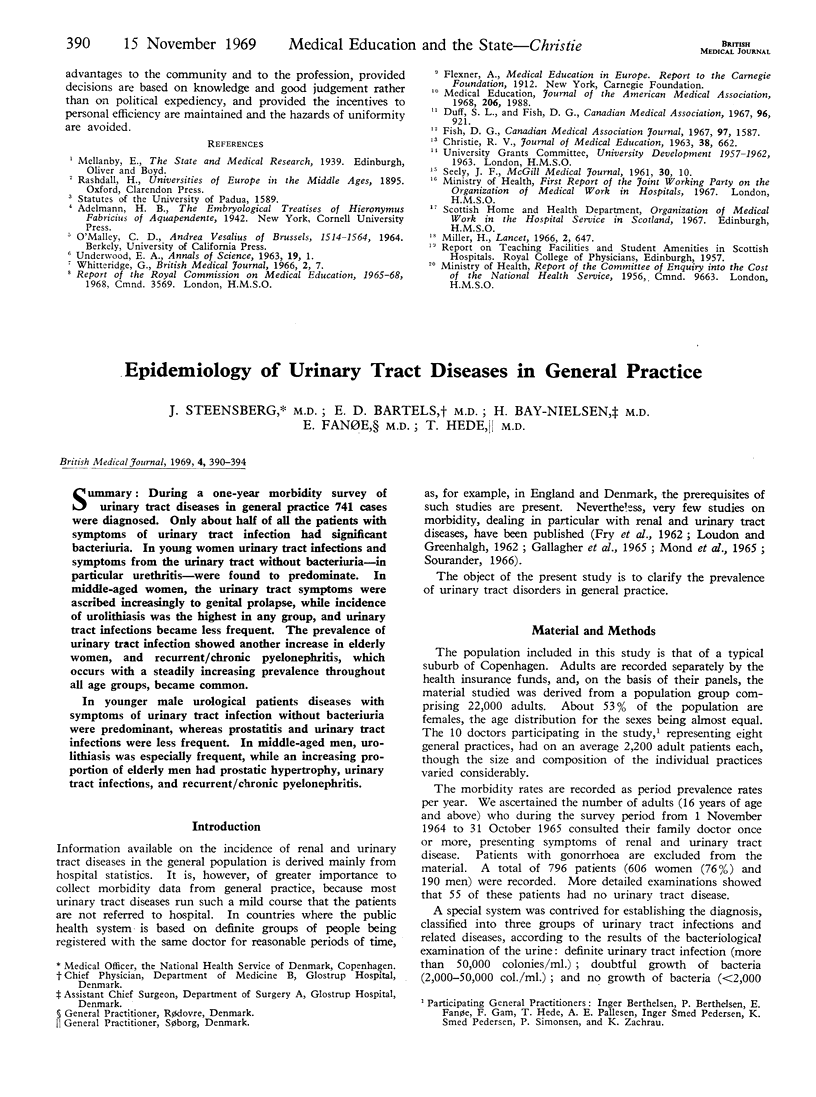
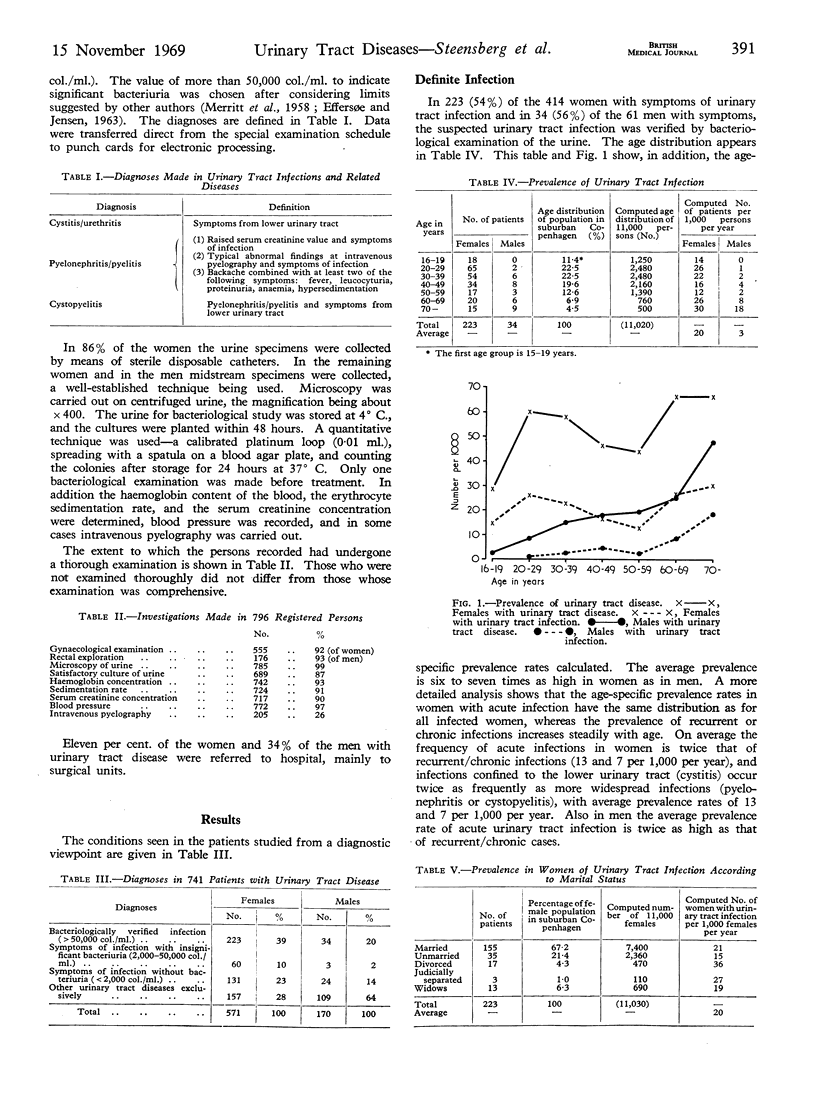
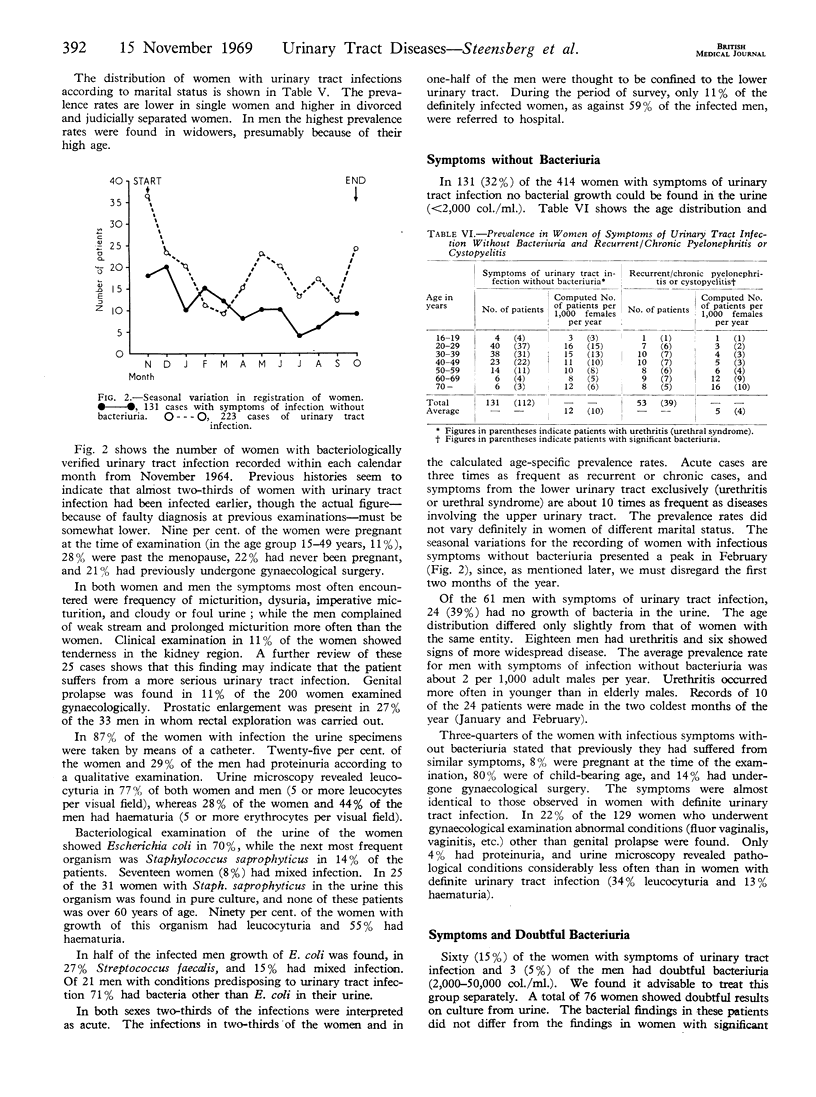
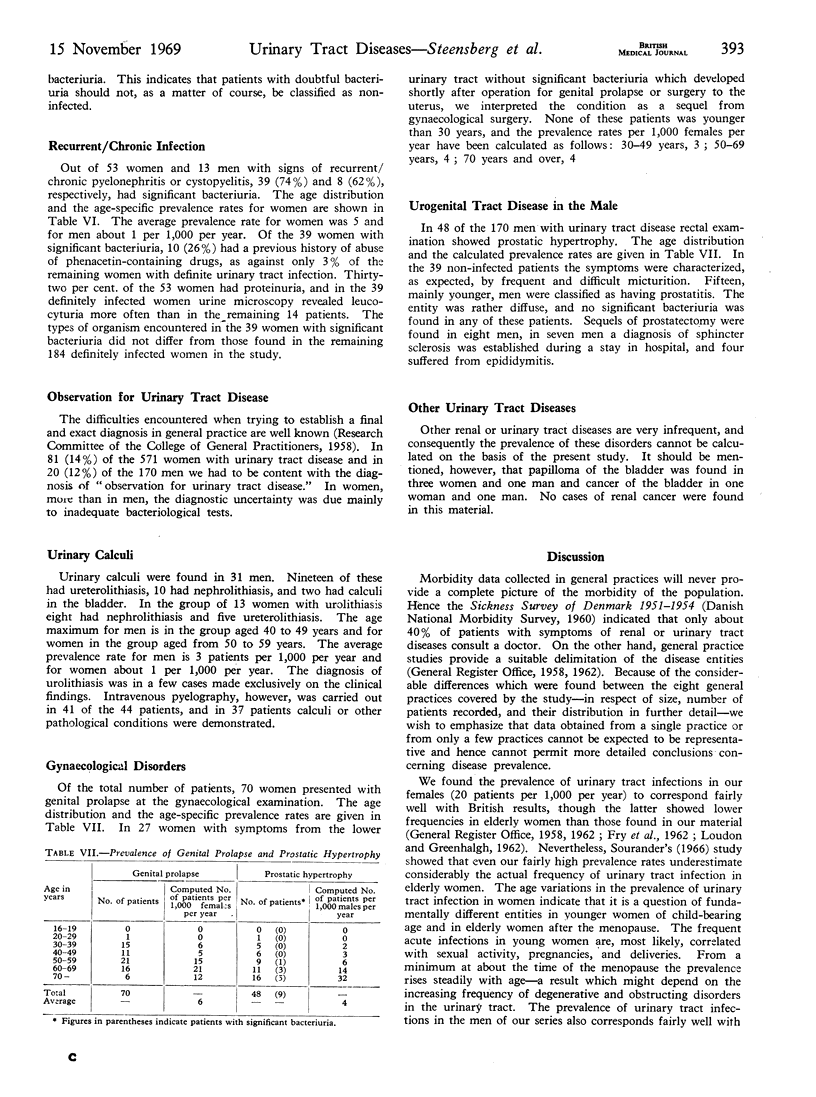
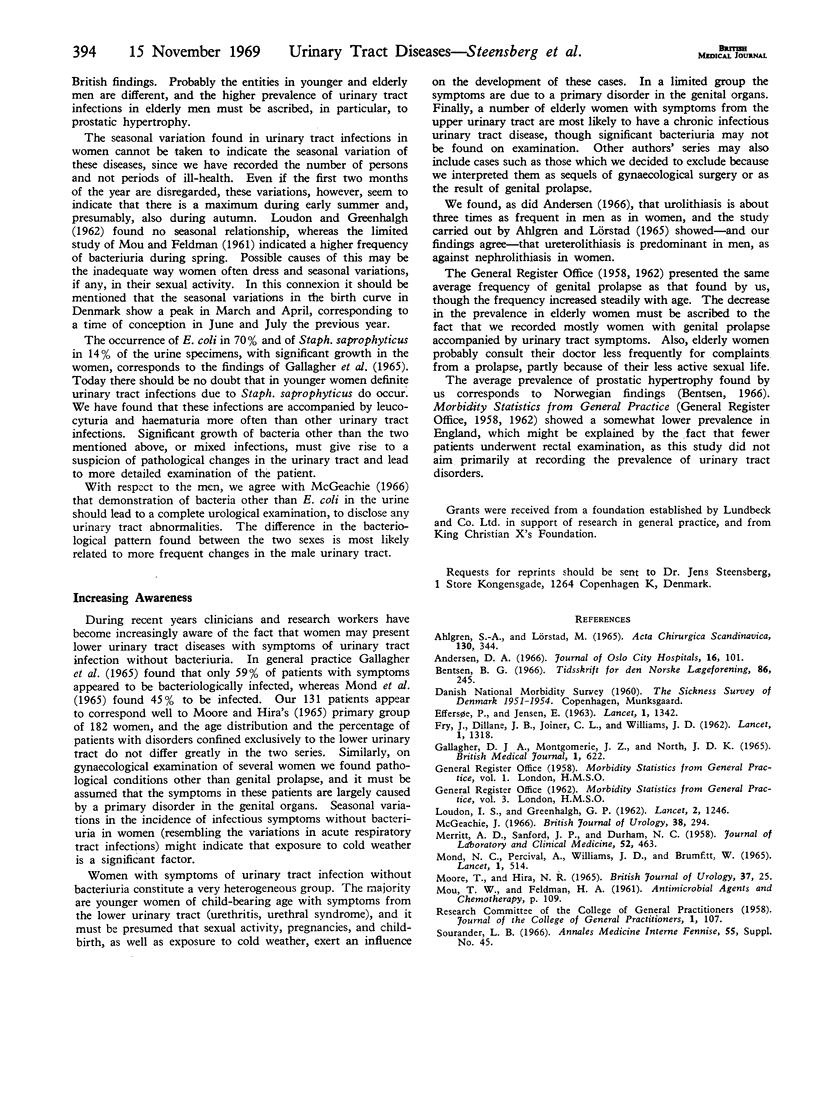
Selected References
These references are in PubMed. This may not be the complete list of references from this article.
- Ahlgren S. A., Lörstad M. Renal and ureteral calculi in a Swedish district. I. An epidemiological investigation of 1429 roentgenologically verified cases. Acta Chir Scand. 1965 Oct;130(4):344–353. [PubMed] [Google Scholar]
- Andersen D. A. A survey of the incidence of urolithiasis in Norway from 1853 to 1960. J Oslo City Hosp. 1966 May-Jun;16(5):101–147. [PubMed] [Google Scholar]
- FRY J., DILLANE J. B., JOINER C. L., WILLIAMS J. D. Acute urinary infections. Their course and outcome in general practice with special reference to chronic pyelonephritis. Lancet. 1962 Jun 23;1(7243):1318–1321. doi: 10.1016/s0140-6736(62)92421-2. [DOI] [PubMed] [Google Scholar]
- GALLAGHER D. J., MONTGOMERIE J. Z., NORTH J. D. ACUTE INFECTIONS OF THE URINARY TRACT AND THE URETHRAL SYNDROME IN GENERAL PRACTICE. Br Med J. 1965 Mar 6;1(5435):622–626. doi: 10.1136/bmj.1.5435.622. [DOI] [PMC free article] [PubMed] [Google Scholar]
- MERRITT A. D., SANFORD J. P. Sterile-voided urine culture; an evaluation in 100 consecutive hospitalized women. J Lab Clin Med. 1958 Sep;52(3):463–470. [PubMed] [Google Scholar]
- MOND N. C., PERCIVAL A., WILLIAMS J. D., BRUMFITT W. PRESENTATION, DIAGNOSIS, AND TREATMENT OF URINARY-TRACT INFECTIONS IN GENERAL PRACTICE. Lancet. 1965 Mar 6;1(7384):514–516. doi: 10.1016/s0140-6736(65)92020-9. [DOI] [PubMed] [Google Scholar]
- MOORE T., HIRA N. R. THE ROLE OF THE FEMALE URETHRA IN INFECTIONS OF THE URINARY TRACT. Br J Urol. 1965 Feb;37:25–33. doi: 10.1111/j.1464-410x.1965.tb09569.x. [DOI] [PubMed] [Google Scholar]
- McGeachie J. Quantitative bacteriology of urinary infection. Br J Urol. 1966 Jun;38(3):294–301. doi: 10.1111/j.1464-410x.1966.tb09715.x. [DOI] [PubMed] [Google Scholar]


